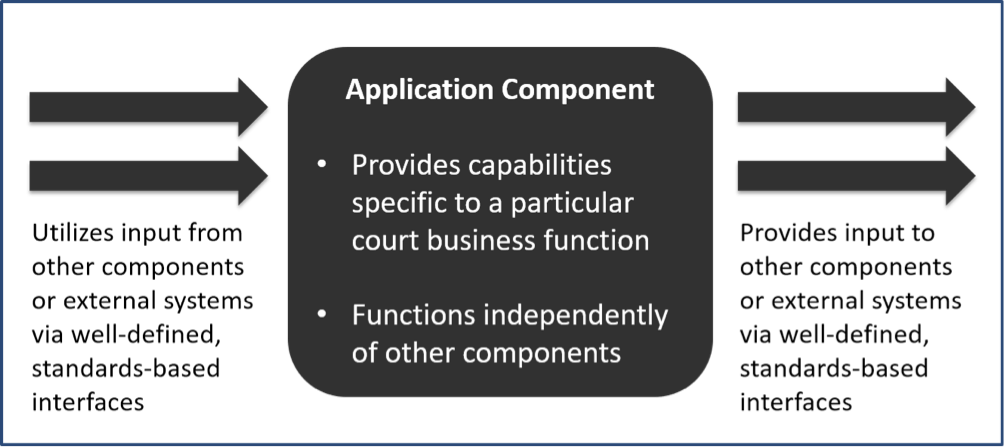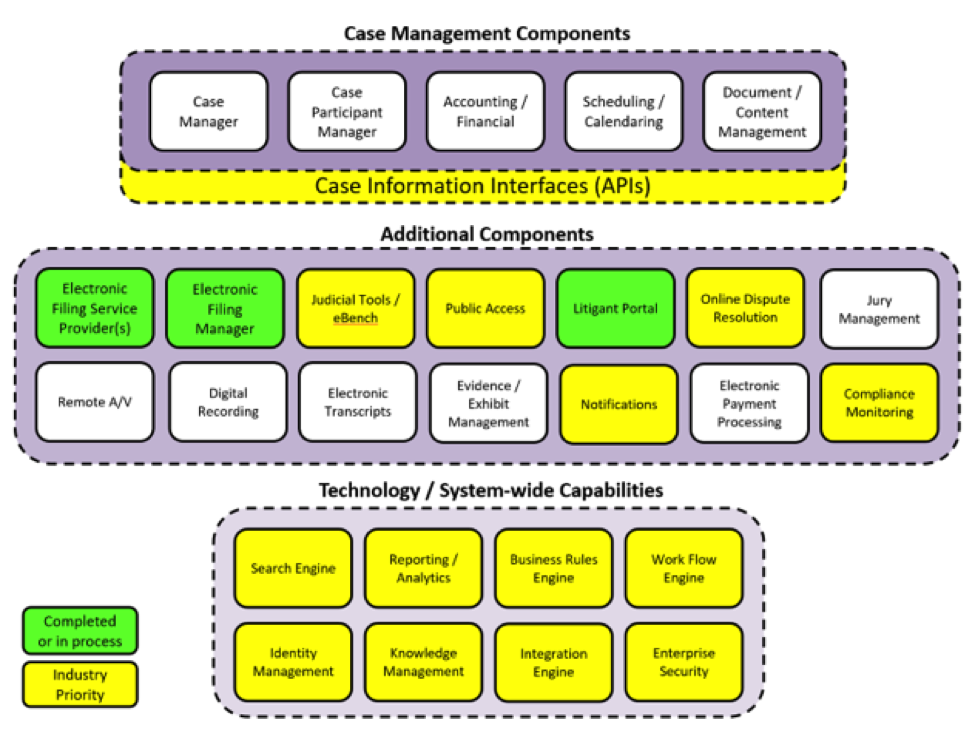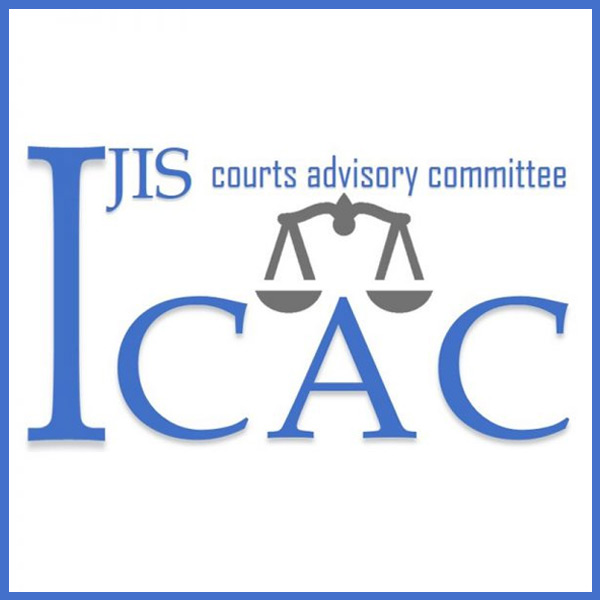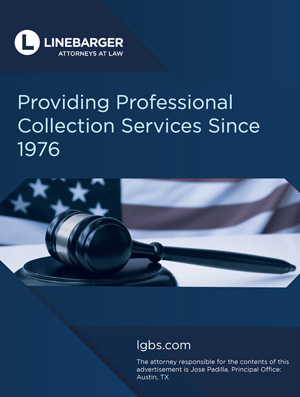Next Gen Court Case Management
Earlier this year, the National Center for State Courts and the Joint Technology Committee introduced a framework to help courts and software suppliers think more strategically about technology. Dubbed “the application component model,” it’s the second of three phases in building the next generation of court case management system standards. According to the Introduction to the Next Generation Court Technology Standards Application Component Model, the intent is to align business capabilities with modular pieces of technology that fulfill specific business functions while providing services to other components as needed.

It also argues that a prototype application component model is needed to “develop a consensus among court managers and industry about the identity and relationship of application components . . . that would comprise the foundation of a state-of-the-art court technology environment. . . . When components become available from various vendors in the market, and assuming the components can communicate with each other through standardized interfaces, a court will be able to select the ‘best in class’ components to mix-and-match them to achieve the desired functionality with the desired features, to form an interoperable set of court technology functionality” (p. 2).

| COMPONENT | PURPOSE | FEATURES |
|---|---|---|
| Case Manager | Serves as the “traffic cop” to handle interactions among components and maintains the state/status of cases |
|
| Case Participant Manager | Provides support for managing participants |
|
| Accounting/Financial | Manages monetary matters applicable to the case |
|
| Scheduling/Calendaring | Provides support for scheduling and maintaining calendars |
|
| Document/Content Management | Manages the artifacts and evidence applicable in a case |
|
| Electronic Filing Service Providers | Provides an online service to help filers file their documents and acts as the intermediary between the filer and the electronic filing manager |
|
| Electronic Filing Manager | Provides a single interface for managing the electronic filings to a state or local jurisdiction |
|
| Public Access | Provides qualified, DIY-based access to information about cases, participants, dockets, artifacts, calendar, and financials |
|
| Judicial Tools/e-Bench | Provides decision-making support to the judiciary, on and off the bench |
|
| Jury Management | Provides jury management services |
|
| Evidence/Exhibit Management | Provides evidence- and exhibit-tracking and management services. |
|
| Online Dispute Resolution | Provides services to assist in the resolution of cases outside of a physical or virtual courtroom |
|
| Remote A/V | Provides audio and video services |
|
| Digital Recording | Provides electronic management features for recording, accessing, and referencing court proceedings |
|
| Electronic Transcripts | Provides transcription services on demand from contract transcriptionists |
|
| Notifications | Provides on-demand service of printing, mailing, and tracking of undelivered paper notifications (e.g., jury summonses, mass notifications) |
|
| Electronic Payment Processing | Communicates with merchant-banking system |
|
| Compliance Monitoring | Provides tools for monitoring compliance with court orders, time standards, court rules, financial obligations, reporting requirements (e.g., guardianship reports), etc. |
|
| Search Engine | Searches for and identifies items in a database that correspond to keywords or characters specified by the user |
|
| Reporting/Analytics | Provides options for reporting and methods of data analysis |
|
| Business Rules Engine | Repository of executable business rules |
|
| Identity Management | Provides authorization/authentication |
|
| Knowledge Management | Gathers, organizes, shares, and analyzes its knowledge in terms of resources, documents, and people skills |
|
| Integration Engine | Provides API for third-party systems |
|
| Enterprise Security | Applies a comprehensive and rigorous method for describing a current and/or future structure and behavior for an organization’s security processes |
|
ABOUT THE AUTHOR
Sue Humphreys is vice-chair of the IJIS Courts Advisory Committee.



